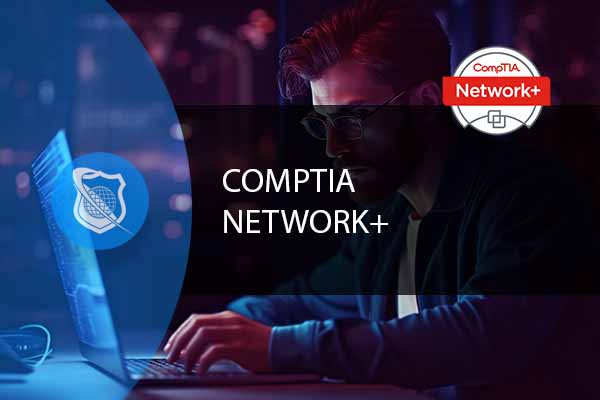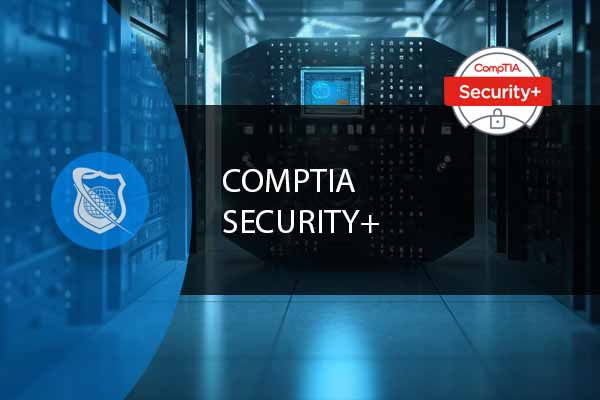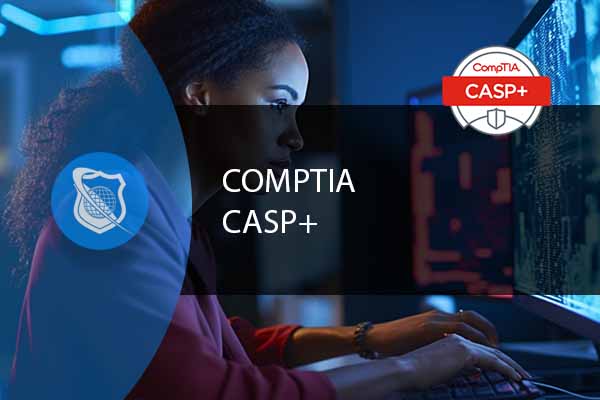As the IT industry evolves, so do the certifications that validate your skills. In 2025, CompTIA continues to be a leading provider of IT certifications, but which exams are the hardest, and which are the easiest? Whether you’re a beginner or an experienced professional, this updated guide ranks CompTIA exams by difficulty to help you choose the right certification for your career path.
CompTIA exams ranked by difficulty
CompTIA Advanced Security Practitioner (CASP+): Still considered one of the most difficult due to its advanced topics.
CompTIA Security+: Moderate difficulty, but highly sought after in 2025 for cybersecurity roles.
CompTIA Network+: Slightly easier than Security+, but still challenging for beginners.
CompTIA A+: Easiest, ideal for entry-level IT professionals.
2025 CompTIA A+ Certification Prep
Get certified with the globally trusted credential for entry-level IT professionals.
The updated 220-1201 & 220-1202 exams deliver cutting-edge skills for today’s tech-driven world—covering essential hardware, software, networking, and security knowledge.
Stay relevant. Stay certified. Start your future in IT today!
Why CompTIA Certifications Matter in 2025
In 2025, the IT industry continues to evolve at a rapid pace, with emerging technologies like artificial intelligence, cloud computing, and cybersecurity driving demand for skilled professionals. As organizations worldwide prioritize digital transformation, the need for certified IT experts has never been greater. This is where CompTIA certifications come into play.
CompTIA certifications are globally recognized credentials that validate your expertise in key areas of IT. Whether you’re just starting your career or looking to advance, these certifications align perfectly with industry needs. Here’s why they matter in 2025:
- IT Career Growth: CompTIA certifications open doors to high-paying roles in cybersecurity, networking, and cloud computing. With employers increasingly prioritizing certified professionals, holding a CompTIA credential can significantly boost your career prospects.
- In-Demand Certifications: Certifications like CompTIA Security+, Network+, and CASP+ are consistently ranked among the most sought-after credentials in the IT industry. They demonstrate your ability to handle real-world challenges, making you a valuable asset to any organization.
- 2025 IT Trends: As technology advances, so do the skills required to manage it. CompTIA certifications are regularly updated to reflect the latest trends, ensuring you stay ahead of the curve. For example, the inclusion of AI and machine learning concepts in advanced certifications ensures you’re prepared for the future of IT.
In a competitive job market, CompTIA certifications not only validate your skills but also give you a competitive edge. Whether you’re aiming for an entry-level position or a senior role, these certifications are your ticket to success in 2025 and beyond.
Tips to Pass the Hardest CompTIA Exams
CompTIA exams like the Advanced Security Practitioner (CASP+) and Cybersecurity Analyst (CySA+) are known for their difficulty. However, with the right approach, you can conquer these challenging certifications. Here are some actionable tips to help you pass the hardest CompTIA exams in 2025:
- Understand the Exam Objectives: Before diving into study materials, review the official exam objectives provided by CompTIA. This will give you a clear roadmap of what to expect and help you focus on the most critical topics.
- Create a Study Plan: Break down the exam content into manageable sections and allocate time for each. Consistency is key—dedicate at least 2-3 hours daily to studying, and use tools like flashcards and practice exams to reinforce your knowledge.
- Leverage Hands-On Practice: For exams like CASP+ and CySA+, theoretical knowledge isn’t enough. Set up a home lab or use virtual environments to gain hands-on experience with tools and technologies covered in the exam.
- Join Study Groups or Forums: Engaging with a community of learners can provide valuable insights and motivation. Platforms like Reddit, LinkedIn, and CompTIA’s own forums are great places to ask questions and share resources.
- Take Practice Exams: Simulate the real exam environment by taking timed practice tests. This will help you identify weak areas and build confidence in your ability to tackle difficult questions.
- Stay Updated on Industry Trends: CompTIA exams often include questions about the latest technologies and trends. Follow industry blogs, attend webinars, and read whitepapers to stay informed.
By following these study tips and dedicating time to exam prep, you’ll be well-equipped to pass even the hardest CompTIA exams in 2025.
Easiest CompTIA Certifications for Beginners
If you’re new to the IT industry, starting with the right certification can set the foundation for a successful career. In 2025, CompTIA offers several beginner-friendly certifications designed to help you build essential skills and gain confidence. Here are the easiest CompTIA certifications for beginners:
- CompTIA IT Fundamentals (ITF+):
- Why It’s Easy: ITF+ is designed for absolute beginners with no prior IT experience. It covers basic concepts like hardware, software, networking, and cybersecurity in a straightforward manner.
- Who It’s For: Anyone looking to explore a career in IT or validate their foundational knowledge.
- Keyword Focus: “Beginner-friendly certifications,” “start IT career.”
- CompTIA A+:
- Why It’s Easy: While slightly more advanced than ITF+, A+ is still accessible for beginners. It focuses on essential skills like troubleshooting, operating systems, and hardware, making it a great starting point.
- Who It’s For: Aspiring IT support specialists, help desk technicians, or anyone entering the IT field.
- Keyword Focus: “Beginner IT certifications,” “start IT career.”
- CompTIA Cloud Essentials+:
- Why It’s Easy: This certification provides a high-level overview of cloud computing concepts without requiring deep technical expertise. It’s ideal for those interested in cloud technologies but not ready for advanced certifications.
- Who It’s For: Beginners exploring cloud careers or professionals transitioning to IT.
- Keyword Focus: “Beginner-friendly certifications,” “cloud computing for beginners.”
Starting with these certifications not only builds your knowledge but also boosts your confidence to tackle more advanced exams in the future. In 2025, these beginner-friendly certifications remain the best way to start your IT career on the right foot.
Factors Affecting Exam Difficulty
Before diving into the rankings, it’s essential to understand the factors that contribute to the difficulty of CompTIA exams. While some certifications are universally recognized as more challenging, the perceived difficulty can vary based on several key elements. Here’s a breakdown of the factors that influence how hard or easy a CompTIA exam might feel for you:
1. Exam Objectives and Scope
The breadth and depth of the topics covered in a CompTIA exam play a significant role in its difficulty. For example:
- Broad Exams: Certifications like CompTIA A+ cover a wide range of topics, from hardware and software to basic networking. While this makes them beginner-friendly, the sheer volume of material can be overwhelming.
- Niche Exams: Certifications like CompTIA CASP+ or CySA+ focus on advanced, specialized areas such as enterprise security or threat analysis. These require a deeper understanding of complex concepts, making them more challenging.
2. Exam Format and Question Types
CompTIA exams use a variety of question formats, including multiple-choice, performance-based questions (PBQs), and drag-and-drop scenarios. The mix of these formats can impact difficulty:
- Performance-Based Questions (PBQs): These are hands-on tasks that simulate real-world scenarios. Exams with a higher number of PBQs, like Security+ or CASP+, are often considered more difficult because they test practical skills rather than just theoretical knowledge.
- Multiple-Choice Questions: While these are generally easier, they can still be tricky if the questions are worded ambiguously or require in-depth knowledge.
3. Passing Score Requirements
Each CompTIA exam has a different passing score, which can influence its perceived difficulty:
- Higher Passing Scores: Exams like CASP+ require a higher score to pass, making them more challenging.
- Lower Passing Scores: Entry-level exams like ITF+ have lower passing thresholds, making them more accessible for beginners.
4. Your IT Background and Experience
Your prior knowledge and experience in IT can significantly impact how difficult an exam feels:
- Beginners: If you’re new to IT, even foundational exams like A+ might feel challenging due to the unfamiliarity with concepts.
- Experienced Professionals: If you’ve worked in IT for years, advanced exams like CASP+ might feel more manageable because you’ve already encountered many of the concepts in your job.
5. Study Resources and Preparation Time
The availability of quality study materials and the time you dedicate to preparation can make or break your exam experience:
- Comprehensive Resources: Access to up-to-date study guides, practice exams, and hands-on labs can make even the hardest exams more approachable.
- Time Commitment: Exams like CASP+ or CySA+ require significant preparation time. If you’re juggling work or other commitments, this can add to the perceived difficulty.
6. Personal Learning Style
Everyone learns differently, and your preferred learning style can influence how challenging an exam feels:
- Visual Learners: If you thrive on diagrams and videos, exams with heavy technical content might feel easier.
- Hands-On Learners: If you prefer practical experience, exams with performance-based questions might feel more natural to you.
7. Subjective Perception of Difficulty
Finally, it’s important to remember that difficulty is subjective. What one person finds challenging, another might find straightforward. Factors like test anxiety, confidence levels, and even the testing environment can influence how hard an exam feels on the day.
Why Understanding These Factors Matters
By understanding the factors that contribute to exam difficulty, you can better prepare yourself for success. For example:
- If you’re new to IT, starting with foundational certifications like ITF+ or A+ can help you build confidence.
- If you’re an experienced professional, tackling advanced certifications like CASP+ or CySA+ might be the next logical step in your career.
Ultimately, the key to conquering any CompTIA exam lies in aligning your preparation strategy with these factors. Whether you’re aiming for an entry-level certification or an advanced credential, knowing what to expect can make all the difference.
Perpare for CompTIA Network+ Certification
Learn concrete vendor neutral Network fundamentals in our comprehensive CompTIA Network+ traning course.
A Deeper Look at Each Exam
To help you make an informed decision about which CompTIA certification to pursue in 2025, we’ve broken down each of the ranked exams in detail. Below, you’ll find information on exam formats, objectives, passing scores, costs, and more. This section is designed to enhance your understanding and provide actionable insights to guide your preparation.
1. CompTIA Advanced Security Practitioner (CASP+)
- Difficulty Level: Hardest
- Exam Code: CAS-004 (as of 2025)
- Exam Format:
- Question Types: Multiple-choice and performance-based questions (PBQs).
- Number of Questions: Maximum of 90 questions.
- Duration: 165 minutes.
- Exam Objectives:
- Enterprise security architecture
- Risk management and incident response
- Research and collaboration
- Integration of cloud and virtualization technologies
- Passing Score: 750 on a scale of 900.
- Exam Cost: $494 (USD).
- Testing Locations: Available at Pearson VUE testing centers worldwide or online through OnVUE.
- Why It’s Challenging: CASP+ is an advanced-level certification that requires hands-on experience in enterprise security. The performance-based questions and complex scenarios make it one of the hardest CompTIA exams.
- SEO Keywords: “CASP+ exam 2025,” “advanced security certification,” “hardest CompTIA exam.”
2. CompTIA Cybersecurity Analyst (CySA+)
- Difficulty Level: Challenging
- Exam Code: CS0-003 (as of 2025)
- Exam Format:
- Question Types: Multiple-choice and performance-based questions (PBQs).
- Number of Questions: Maximum of 85 questions.
- Duration: 165 minutes.
- Exam Objectives:
- Threat and vulnerability management
- Software and systems security
- Security operations and monitoring
- Incident response
- Passing Score: 750 on a scale of 900.
- Exam Cost: $404 (USD).
- Testing Locations: Available at Pearson VUE testing centers or online via OnVUE.
- Why It’s Challenging: CySA+ focuses on real-world threat detection and response, requiring a deep understanding of cybersecurity tools and techniques. The PBQs can be particularly demanding for those without hands-on experience.
- SEO Keywords: “CySA+ exam 2025,” “cybersecurity analyst certification,” “CompTIA CySA+ cost.”
3. CompTIA Security+
- Difficulty Level: Moderate
- Exam Code: SY0-701 (as of 2025)
- Exam Format:
- Question Types: Multiple-choice and performance-based questions (PBQs).
- Number of Questions: Maximum of 90 questions.
- Duration: 90 minutes.
- Exam Objectives:
- Network security
- Threats, attacks, and vulnerabilities
- Identity and access management
- Cryptography and PKI
- Passing Score: 750 on a scale of 900.
- Exam Cost: $404 (USD).
- Testing Locations: Available at Pearson VUE testing centers or online via OnVUE.
- Why It’s Moderate: Security+ is a foundational cybersecurity certification, but its broad scope and inclusion of PBQs make it more challenging than entry-level exams. It’s ideal for those with some IT experience.
- SEO Keywords: “Security+ exam 2025,” “CompTIA Security+ cost,” “cybersecurity certification for beginners.”
4. CompTIA A+
- Difficulty Level: Easiest
- Exam Code: 220-1101 (Core 1) and 220-1102 (Core 2) (as of 2025)
- Exam Format:
- Question Types: Multiple-choice and performance-based questions (PBQs).
- Number of Questions: Maximum of 90 questions per exam.
- Duration: 90 minutes per exam.
- Exam Objectives:
- Hardware and networking troubleshooting
- Operating systems and software
- Mobile devices and virtualization
- Security and operational procedures
- Passing Score: 675 (Core 1) and 700 (Core 2) on a scale of 900.
- Exam Cost: 246(USD)perexam(total246(USD)perexam(total492 for both Core 1 and Core 2).
- Testing Locations: Available at Pearson VUE testing centers or online via OnVUE.
- Why It’s Easiest: A+ is designed for beginners and covers foundational IT concepts. While it requires studying a wide range of topics, the depth of knowledge required is less than that of advanced certifications.
- SEO Keywords: “CompTIA A+ exam 2025,” “beginner IT certification,” “A+ exam cost.”
Secure Your Networks and Prevent Password Breaches
Our robust CompTIA Sec+ course is the perfect resouce to ensure your company’s most valuable assets are safe. Up your security skills with this comprehensive course at an exceptional price.
Your Complete Training to Prepare for CASP+ Certification
IThe advanced-level CompTIA CASP+ training course in enterprise environment security (CASP-003) covers risk mitigation, security risks, levels of risks, competency in risk management, enterprise security operations, architecture, research and collaboration, and integration of enterprise security in complex environments.
Conclusion
Navigating the world of CompTIA exams can feel overwhelming at first, but with the right strategy and mindset, it’s entirely manageable. By understanding how CompTIA exams are ranked by difficulty, you can make informed decisions about which certifications align with your career goals and skill level. Whether you’re aiming for the beginner-friendly CompTIA A+ or tackling the advanced challenges of CASP+, each certification is a stepping stone toward a brighter future in the IT industry.
Remember, the journey to becoming a certified IT professional is a marathon, not a sprint. It’s about consistent effort, effective preparation, and a willingness to learn. Here are a few key takeaways to keep in mind as you embark on this path:
- Start with the Right Certification: If you’re new to IT, begin with foundational certifications like A+ or ITF+ to build your confidence and knowledge. For experienced professionals, advanced certifications like CySA+ or CASP+ can help you specialize and stand out in the job market.
- Leverage the Right Resources: Use study guides, practice exams, and hands-on labs to prepare effectively. Join online communities or study groups to stay motivated and gain insights from others who have taken the exams.
- Stay Updated: The IT industry evolves rapidly, and so do CompTIA exams. Keep an eye on the latest exam objectives, industry trends, and updates to ensure your preparation is aligned with current standards.
- Believe in Yourself: While some exams may seem challenging, remember that thousands of professionals have successfully earned these certifications. With dedication and the right approach, you can too.
By taking your time, preparing thoroughly, and staying focused, you’ll find that these exams are not insurmountable obstacles but milestones in a rewarding and dynamic career. Whether you’re just starting out or looking to advance, CompTIA certifications can open doors to new opportunities and help you achieve your professional goals in 2025 and beyond.
CompTIA Certification Exams : Difficulty Ranking – FAQ Section
What is the easiest CompTIA exam to begin with in 2023?
The CompTIA IT Fundamentals (ITF+) exam is widely considered the easiest entry point for beginners. It covers basic IT knowledge and skills, making it ideal for individuals new to the IT field or considering a career in IT. This foundational exam introduces concepts that are essential for understanding the more complex topics covered in subsequent CompTIA certifications.
How does the CompTIA A+ exam rank in terms of difficulty compared to other CompTIA exams?
The CompTIA A+ certification is often seen as the next step after ITF+ and is regarded as an entry-level exam for IT technicians. It is more challenging than ITF+ but is designed to be accessible for individuals with 9 to 12 months of hands-on experience in the field or lab. A+ covers a broad range of topics, including hardware, software, and troubleshooting, providing a solid foundation for a career in IT.
Which CompTIA certification is considered the most difficult in 2023?
The CompTIA Advanced Security Practitioner (CASP+) exam is often cited as the most challenging CompTIA certification. It’s targeted at IT professionals with at least five years of experience and covers advanced security concepts and practices. CASP+ requires a deep understanding of security topics and the ability to implement solutions in complex environments.
Are there any prerequisites for taking CompTIA exams, and how do they affect exam difficulty?
CompTIA certifications are designed with a progression in mind but do not strictly enforce prerequisites. However, it is recommended to follow the suggested order (starting from ITF+, then A+, Network+, Security+, and so on) because each certification builds on the knowledge and skills from the previous ones. Skipping levels can significantly increase the difficulty of understanding and passing the exams.
How can I best prepare for the varying levels of difficulty across CompTIA exams in 2023?
Preparation for CompTIA exams should include a combination of study materials, hands-on experience, and possibly training courses. Utilize CompTIA’s official study guides, video tutorials, and practice exams. Joining study groups and forums can also provide valuable insights and tips. Tailoring your study approach based on the specific exam’s content and difficulty level is crucial for success.
You may also like:
CompTIA A+ Exam : Understanding the Two Core Exams (220-1001 & 220-1002)
CompTIA + : Understanding the Importance in the IT Industry
CompTIA Security Plus Jobs : 10 High-Paying Ones You Should Know About
CompTIA Network Salary: How Certification Can Boost Your Income
CompTIA Network Security Professional: 10 Essential Tips for Exam Success
















